
The Global Center on Climate Change, Water, Energy, Food, and Health Systems (GC3WEFH) draws on a transdisciplinary team to address multifaceted, evolving climate change through long-term capacity building. Focusing on water scarcity in vulnerable communities, the center seeks to address the interplay of the water-energy-food-health nexus. More than 30 scientists will support evidence-based approaches aimed at improving the health and wellbeing of residents within rural communities and refugee camps.
CCHAR-II Conference
Building on the success of the inaugural conference, the second conference on Climate Change and Health in the Arab Region (CCHAR-II) will be held Aug. 25-26, 2026 in Amman, Jordan under the theme “Policy Translation and Implementation.” The conference aims to move beyond evidence generation toward actionable solutions, focusing on translating climate-health research into effective policies, programs and on-the-ground implementation across the Arab region.

Mission
To address climate change health impacts through new approaches and systems science with a diverse multidisciplinary team of scientists and offer scalable solutions for the most vulnerable global communities.
Who We Are
Principal Investigator
Wael Al-Delaimy, MD, PhDExecutive Committee
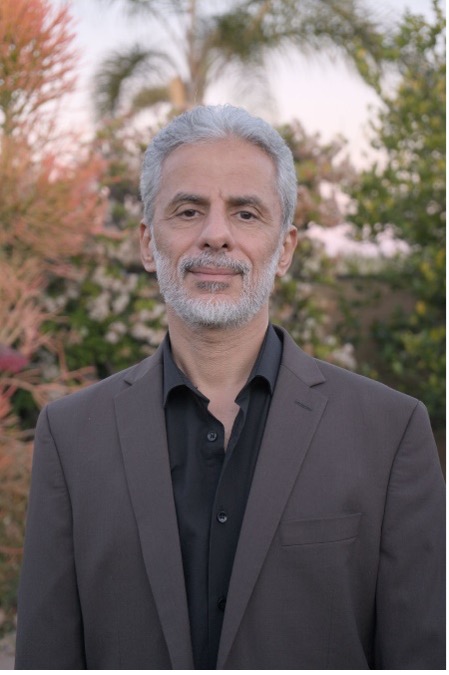 Wael Al-Delaimy, director
Wael Al-Delaimy, director
Wael Al-Delaimy, MD, PhD, is a professor of public health at UC San Diego, and is principal investigator of the National Institutes of Health (NIH) Global Center on Climate Change and Water Energy Food and Health Systems, and developed and co-leads the NIH’s GeoHealth Hub on Climate Change and Health in the Middle East and North Africa. He is a multidisciplinary epidemiologist who works across different topics ranging from chronic diseases, to climate change, tobacco, ethics, health policy and mental health, with a focus on vulnerable populations. His work on climate change is focused on policies in adaptation through multidisciplinary capacity building in low-resourced countries and through community engagement. He led the first International Network for Epidemiology in Policy Climate Change Policy Brief while he was chairing the organization and developed the process for creation of policy briefs to engage epidemiologist in supporting evidence-based policies. He led the editing and co-authored with other notable scientists, faith leaders, and policy makers chapters in the book Health of People, Health of Planet, and Our Responsibility by Springer Nature. His work with communities involves immigrants and refugees, and indigenous population globally and locally.
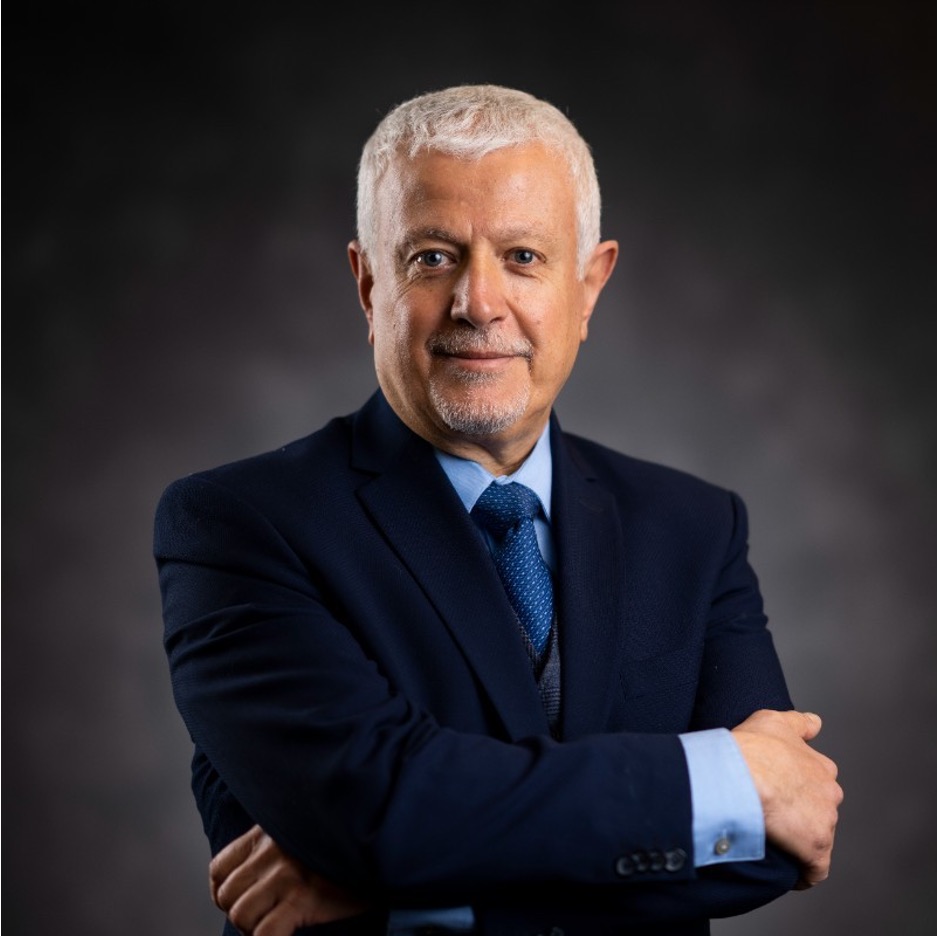 Rabi Mohtar, deputy director
Rabi Mohtar, deputy director
Rabi Mohtar, PhD, leads the Water Energy Food Nexus Group at Texas A&M University as an endowed professor. Academically, he was the dean of the College of Agriculture at the American University in Beirut and the executive director of the Qatar Environment and Energy Research Institute, and he has many other leadership responsibilities in his past and current academic position. He has an exceptional professional leadership track record having served as an advisory panel member for the UN Framework Convention on Climate Change, as part of the International Steering Committee and Board of Governance for the World Water Council, and as vice president, Governance Committee, executive board Member, and chair of the Task Force and Chapters Oversight Committee for the International Water Resources Association. He is a member of the Global Agenda Council on Water Security and member of the Global Agenda on Climate Change of the World Economic Forum. Therefore, his skills as a leader and mentor will support the center and the director with added experience and vision that will span across the different groups and cores.
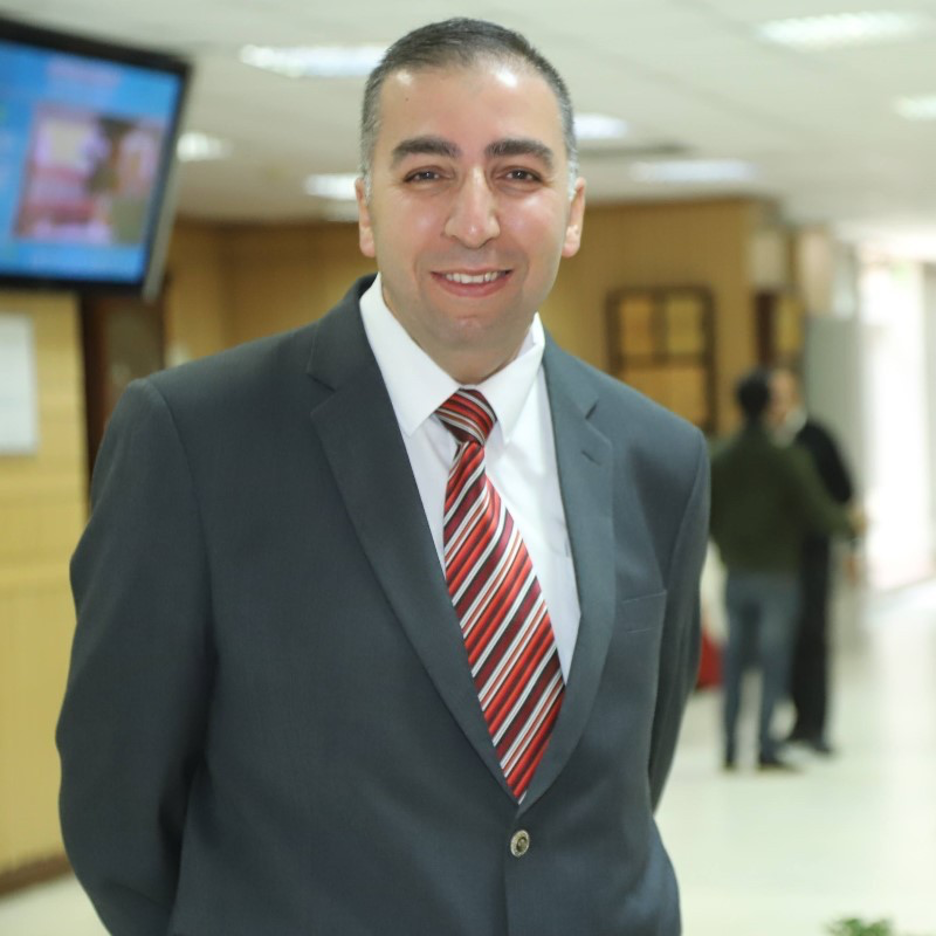 Ahmed Al-Salaymeh, principal investigator for University of Jordan
Ahmed Al-Salaymeh, principal investigator for University of Jordan
Ahmed Al-Salaymeh, PhD, is a professor in the Mechanical Engineering Department at the University of Jordan. He is an expert in the field of energy regulation, a certified energy manager, a certified carbon reduction manager, and has taught an energy regulation course as part of the master’s program of regulation and competition in cooperation with the College of Europe. He was the coordinator at the University of Jordan for “WaSec: Innovations in Water Education Programs: Enhancing Water Security and Socio-economic Development in the Eastern Mediterranean under Climate Change.” Currently, he is the general coordinator for three Erasmus+ Capacity Building in Higher Education projects from Europe, and the regional coordinator for three Erasmus+ Vocational Education and Training projects from Europe. He is a member of the Jordanian Government Nexus Committee.
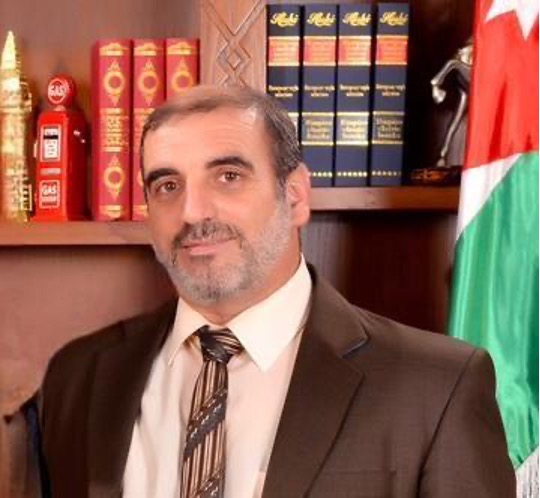 Mohammed Salahat, principal investigator for The Hashemite University
Mohammed Salahat, principal investigator for The Hashemite University
Mohammed Salahat, PhD, is an associate professor of water and land use at Hashemite University in Jordan who has led many international and local projects as a principal investigator or co-investigator. He spent four years in Saudi Arabia as a senior engineer on an irrigation systems project, working with team members from different nationalities and backgrounds. During that time, he gained practical experience in teamwork management and motivating teams to work to their full capacities. At Hashemite University, he is an active member in campus committees, and has held leadership roles, including department chair, and was a member of the Water Resources and Environment Committee of the Jordanian Agricultural Engineering Association.
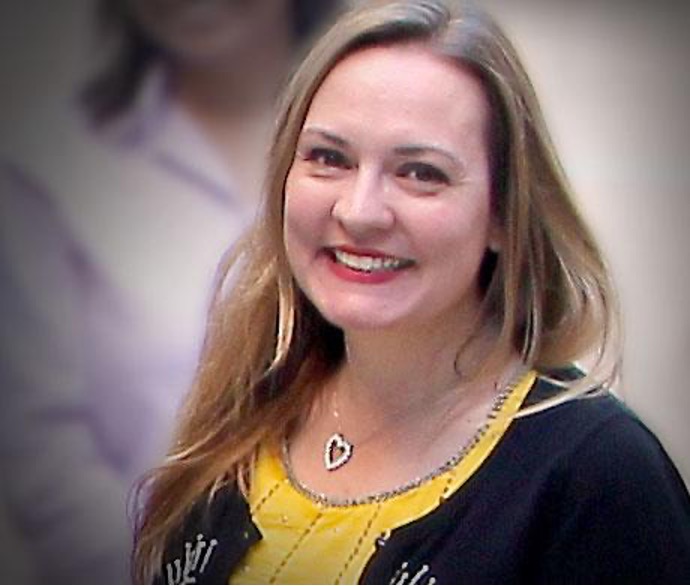 Christine Kirkpatrick, data core lead
Christine Kirkpatrick, data core lead
Christine Kirkpatrick leads the San Diego Supercomputer Center’s (SDSC) Research Data Services division, which manages large-scale infrastructure, networking and services for research projects of regional and national scope. Her research is in data-centric AI, working at the intersection of ML and FAIR, with a focus on making AI more efficient to save on power consumption and “time to science.” Kirkpatrick serves as principal investigator of the FAIR in ML, AI Readiness & Reproducibility RCN which focuses on promoting better practices for AI, improving reproducibility and exploring research gaps in data-centric AI. In addition, Kirkpatrick founded the GO FAIR US Office, is principal investigator of the West Big Data Innovation Hub, is on the executive committee for the Open Storage Network. Kirkpatrick serves as a member of The National Academies of Sciences, Engineering, and Medicine board on research data and information to improve the stewardship, policy and use of digital data and information for science and the broader society. She serves as the secretary general of the International Science Council's Committee on Data, co-chairs the FAIR Digital Object Forum, is on the advisory board for the Helmholtz Federated IT Services and served on the National Academies of Sciences’ U.S. National Committee for the Committee on Data.
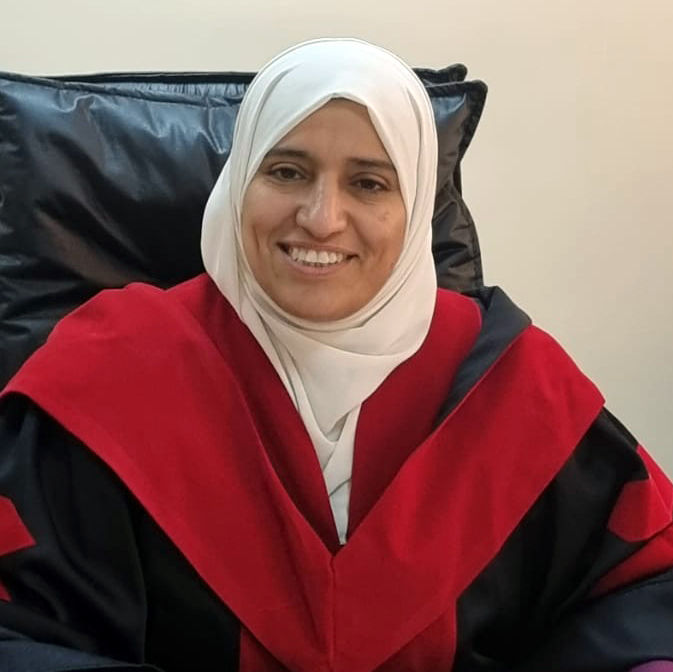 Jamila Abuidhail, The Hashemite University
Jamila Abuidhail, The Hashemite University
Jamila Abuidhail, RN, MSN, PhD, IBCLC is the dean of Faculty of Nursing at The Hashemite University, and a professor at the Maternal, Child and Family Health Care Nursing Department in the Faculty of Nursing/The Hashemite University, Jordan. She has been a member in the Jordanian Nurses and Midwives Council; board member in Sigma Theta/Jordan Charter (since 2023); member in International Lactation Consultant Association since 2020; and chair of Breastfeeding Support Association in Jordan since 2022. She has worked on multiple projects focused on breastfeeding, antenatal and postnatal breastfeeding education. Dr. Abuidhail’s research interests are maternal and child health issues, specifically breastfeeding, reproductive health, health education, women's health and health informatics in maternal nursing care.
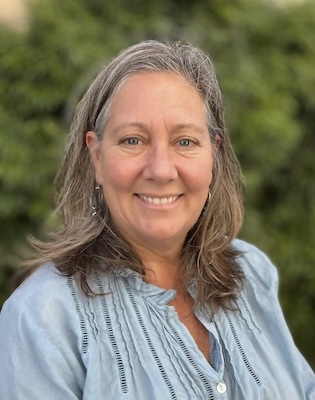 Debbie Loomis, program manager
Debbie Loomis, program manager
Debbie Loomis brings more than 25 years of expertise working in the public health field through education and engagement at the local, national, and international level. With an emphasis on medical sociology and applied methods, her areas of specialization include research, capacity building, training and facilitation, curriculum development and community organizing. Debbie's project management skills include administration and oversight of programs dedicated to improving awareness, access and implementation of wellness efforts among under-resourced communities.
Collaborative Consortium
Core Components
Research Core
The Research Core will highlight the interconnectedness of water, energy, food and health sectors (WEFH) through the development of a dynamic decision support tool. The coordination of planning, financing,and governing these sectors in order to achieve sustainable development and promote the well-being of individuals and communities will be a primary focus. The WEFH tool will guide evidence-based actions to improve health resilience under growing climatic, demographic and geopolitical shocks that can be scaled-up regionally and globally.
Community Engagement
The Community Engagement Core will ensure equitable and ethical involvement of local stakeholders in the implementation of proposed interventions. These stakeholders include residents in rural agricultural regions and refugees who suffer from poverty and geopolitical strife. Vulnerable communities around the globe are experiencing drastic impacts on their water resources due to the effects of climate change, and involving local residents in the development of solutions will lead to better success for improving health outcomes. Communities will be partners, rather than just participants.
Community Advisory Board
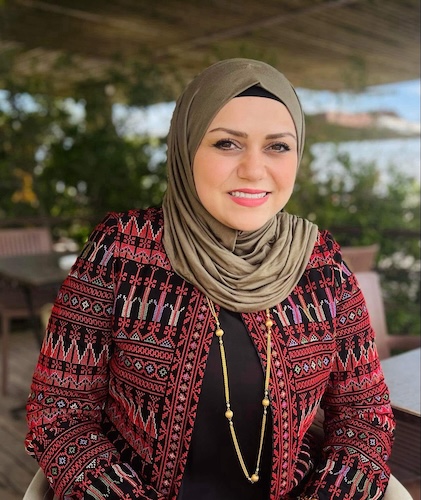 Eng. Doa’a Lutfi Al-Derbani, Advisory Board Liaison. Climate Action Network (CAN) Jordan.
Eng. Doa’a Lutfi Al-Derbani, Advisory Board Liaison. Climate Action Network (CAN) Jordan.
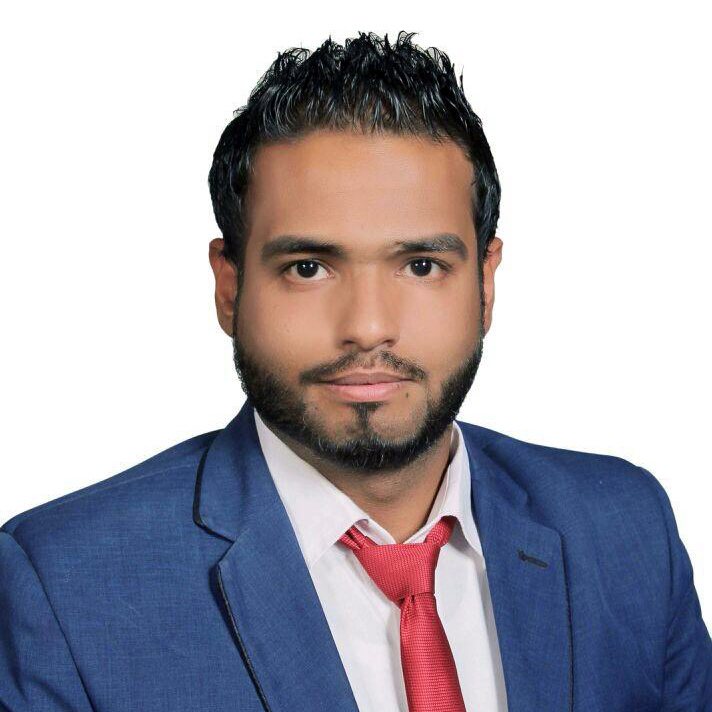 Eng. Musa Al-Khaldi, Jordan Water Authority
Eng. Musa Al-Khaldi, Jordan Water Authority
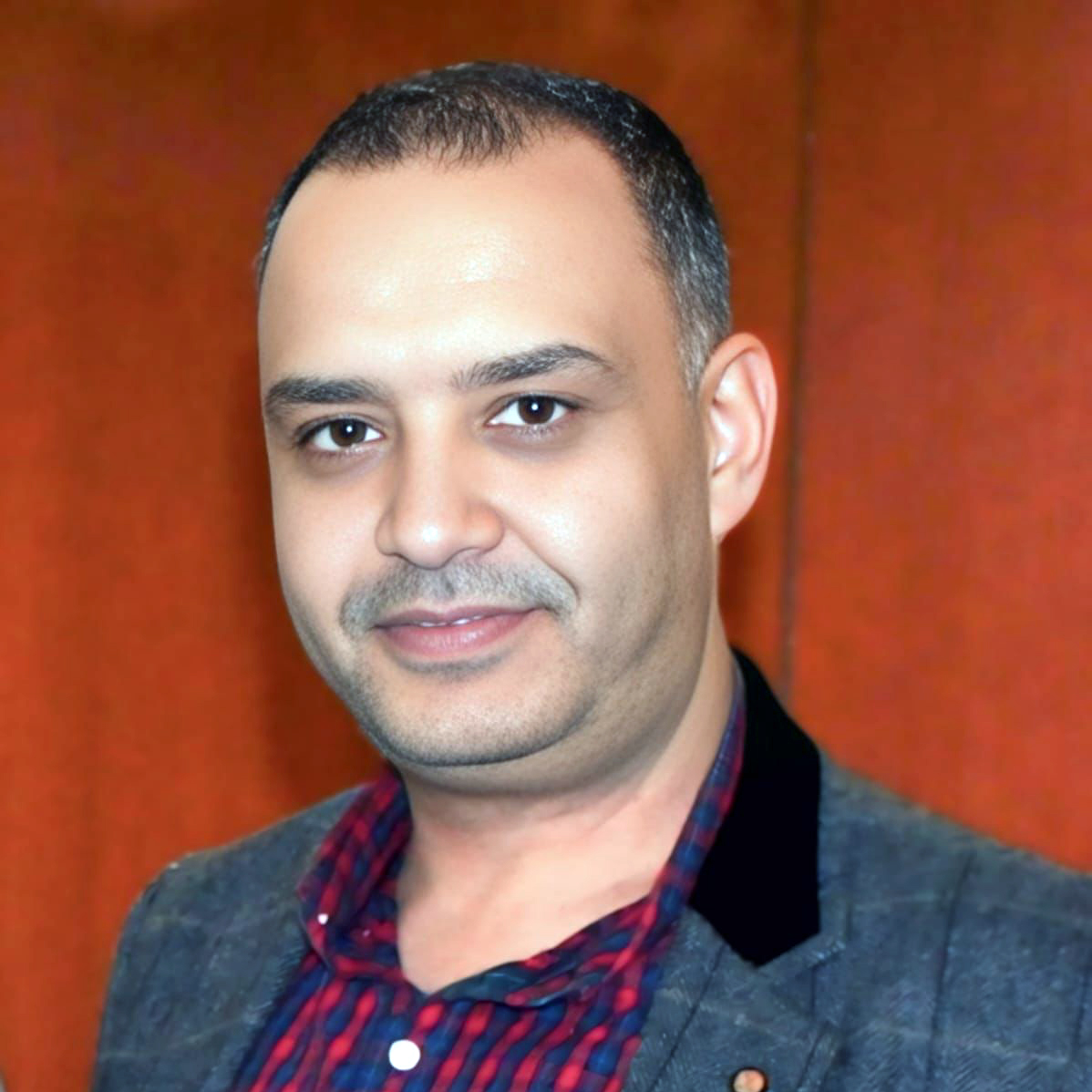 Dr. Rasmi Khazaalah, Media Consultant. Journalist, Jordan News Agency, Faculty member, Jerash University
Dr. Rasmi Khazaalah, Media Consultant. Journalist, Jordan News Agency, Faculty member, Jerash University
 Dr. Samer Makahlah, Health Appeal
Dr. Samer Makahlah, Health Appeal
Dr. Raed Ghareeb, ISNAD
Eng. Ahmad Mayyas, Wastewater Consultant
Data Core
The Data Core will focus on curating and managing online information, building capacity and training our partners in Jordan, offering technical assistance to the Research Core, and facilitating collaboration with activities related to data collection, broad community engagement and policy advancement. This Core will provide data analysis, computational support and visualization to help the health research community make informed decisions about sustainability and model developments in the region.
Pilot Projects
The GC3WEFH has funded several projects in Jordan to support sustainability and resilience on a local level. Focus areas include drought tolerant agriculture, health impacts of climate conditions, community farming, training medical staff on climate related health issues, energy conservation efforts in schools, empowering women and youth with in-house farming, and the installation of greywater systems for water security.
News and Events
PRIM&R Service Award Recipient
Principal Investigator Wael Al-Delaimy, MD, PhD, was awarded the 2025 PRIM&R Service Award, honoring his exceptional leadership, mentorship and pioneering contributions to bioethics, research integrity and public health. Public Responsibility in Medicine and Research is a nonprofit organization dedicated to advancing the highest ethical standards in research since 1974.
Wael Al-Delaimy, MD, PhD, (center) received the 2025 PRIM&R Service Award during a presentation with PRIM&R Executive Director Ivy R. Tillman, EdD, CIP, (right) and PRIM&R Board Chair Gianna McMillan, MA, DBe (left). The presentation took place at PRIM&Rʼs annual conference in Baltimore.
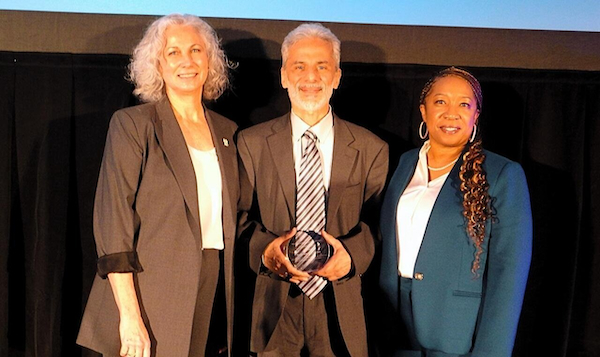
In 2025, Drs. Wael Al-Delaimy and Rabi Mohtar were cited in the Jordan News Agency on the 2025 CCHAR conference and the leadership role Jordan is taking on addressing climate related issues.
Takreem Foundation Laureate

Center Deputy Director Dr. Rabi Mohtar, has been selected by the TAKREEM Foundation as a Laureate recipient of the 2025 Sustainability & Environmental Leadership Award. Laureates are from a wide spectrum of professional fields including science, art, business and humanities.
Advisory Group on Embedding Ethics in Health and Climate Change Policy
December 2024
Prinicipal Investigator Dr. Wael Al-Delaimy was selected as one of 12 global experts, and the only one from the United States, to advise the World Health Organization on the ethics of health and climate change policies.
Nursing Climate Resilience
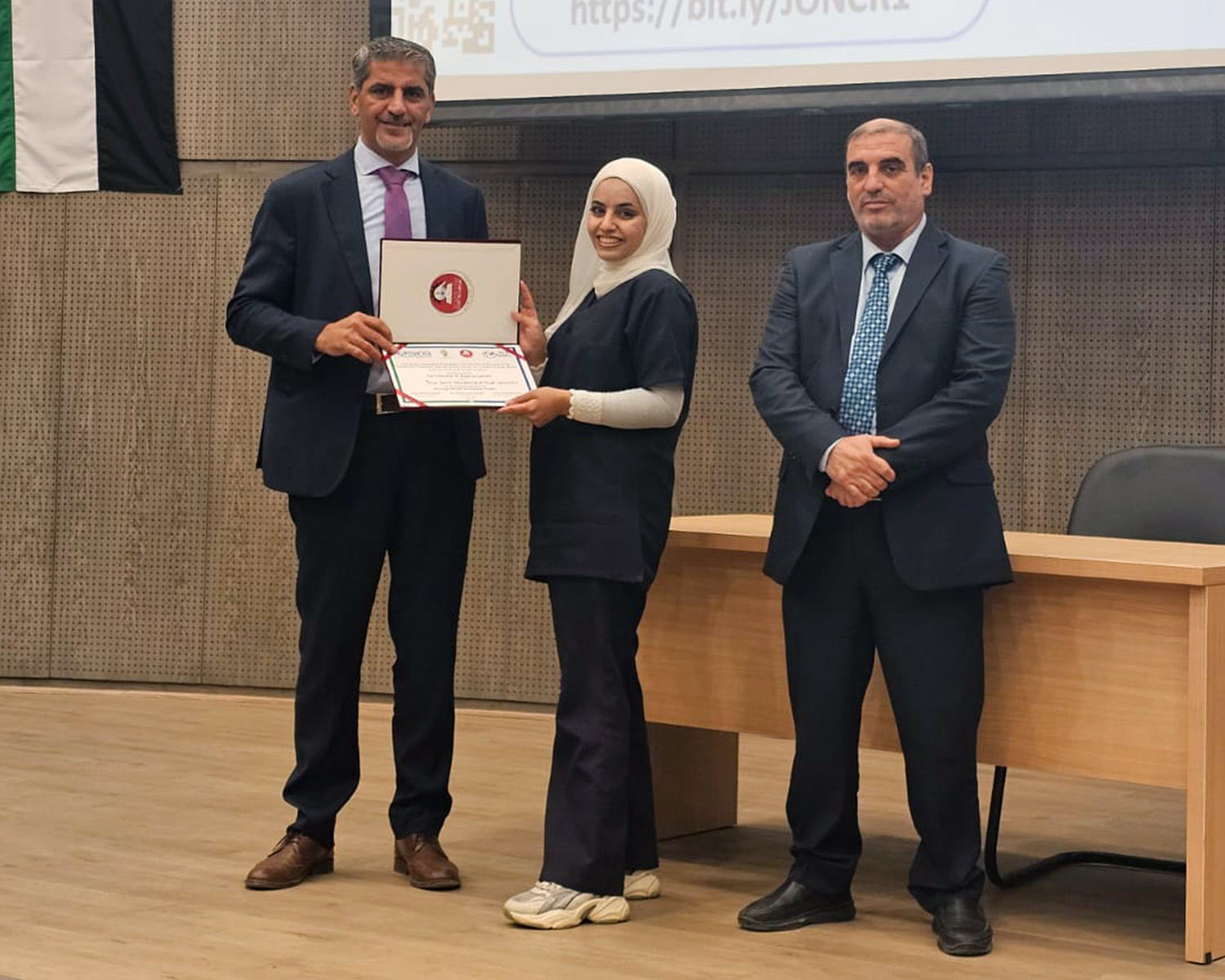
October 2024
As part of the GC3WEFH community pilot projects, the Nursing Climate Resilience project was implemented by Green Generation Foundation in Jordan, in partnership with faculty of nursing at The Hashemite University. A celebration of the third and fourth year nursing students who participated in the program took place at the university. The event was attended by the Dr. Khaled Hyari, president of the university, Dr. Mohamed Salahat, the PI of the center at the university, and Dr. Jamila AbuDhail, dean of nursing and co-PI. Dr. Dheaya Alrousan, executive director of the Green Generation Foundation and professor at Hashemite University, awarded the students who were trained on linkages between climate change and health, policies and practices, sustainable health systems, climate change science and advocacy. The aim of the program was to prepare the nursing students for future engagement in confronting climate change as they enter the labor market. Because nurses play a significant role in the relationships among patients, families and communities, educating them about health impacts will empower them to combat the effects of climate change in their future work.
Triton Leaders Conference
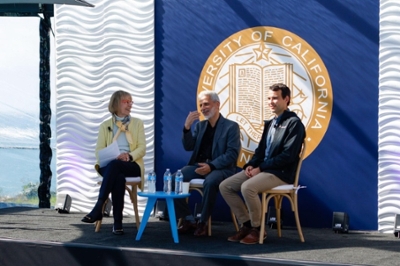
February 2024
Dr. Al-Delaimy participated in a panel forum moderated by Margaret Leinen, PhD, UC San Diego vice chancellor for marine sciences, dean of the School of Marine Sciences and director of Scripps Institution of Oceanography. The discussion centered around global and local health impacts of climate and air pollution. The well attended-event discussed how UC San Diego is leading the way in advancing the research on climate change health impacts locally, nationally and globally. Dr. Al-Delaimy described his ongoing projects on climate change in the Middle East and North Africa, including the GeoHealth Hub and the Global Climate Change Center. He also addressed questions from the audience about the challenges of climate change in terms of prevention, estimating the risks and protecting the most vulnerable in the population.
Jordan Site Visit
December 2023
The team in discussion with local well owner and farmer on implementing the proposed water desalination unit.
Visit to the Zataary Syrian refugee camp solar energy station.
